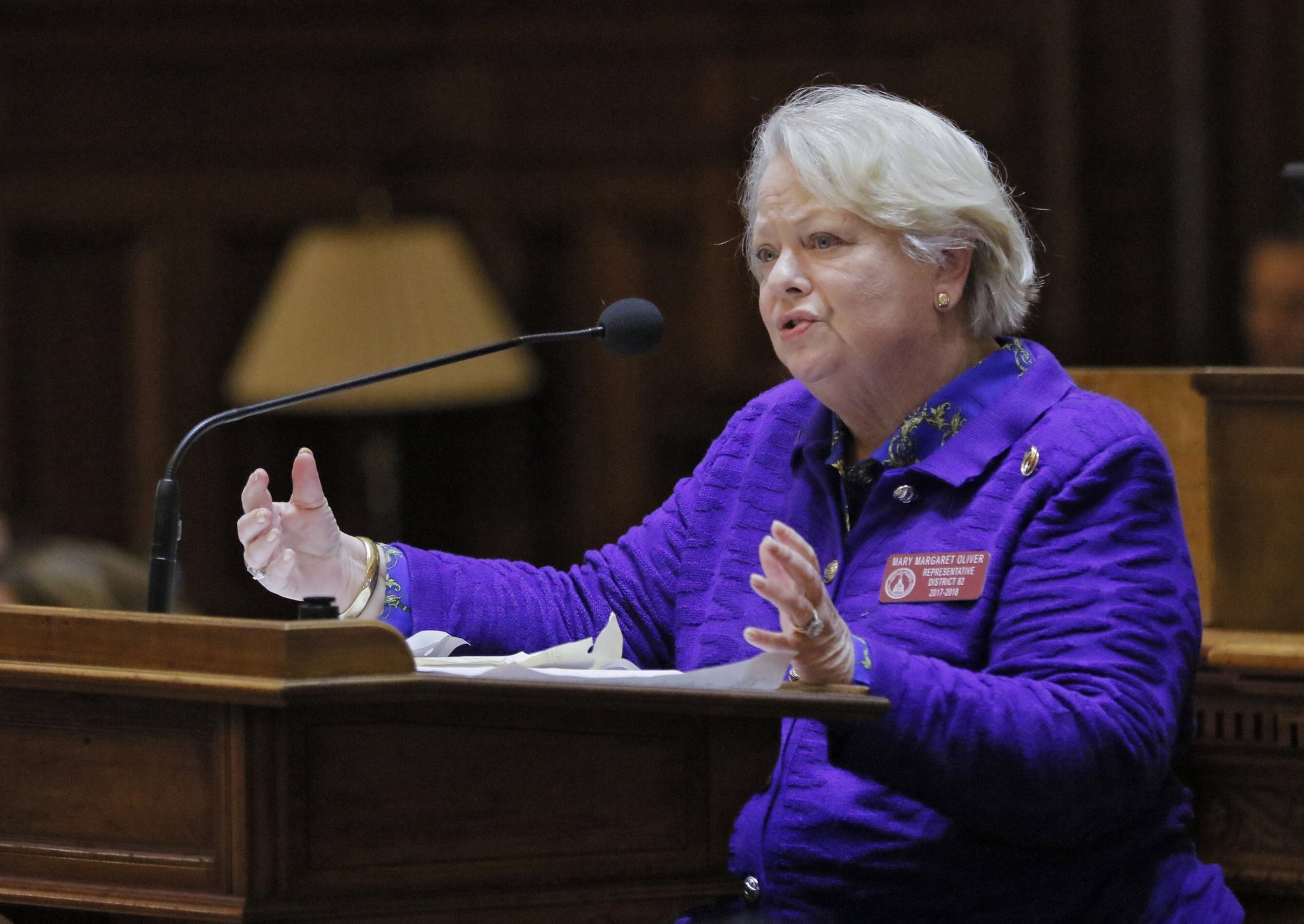‘Campus rape’ bill resurrected as legislative deadline looms
Sexual assault victims and their advocates thought they had won the war with a powerful member of the House when a Senate committee last week voted to table the so-called campus rape bill.
But heading into the final day of this year’s legislative session on Thursday, it is suddenly alive yet again and expected to become the focus of some feverish backroom dealing at the state Capitol.
MORE: A backlash builds on campus rape
SECRETIVE JUSTICE: How Georgia colleges handle rape on campus
The bill's chief backer, state Rep. Earl Ehrhart, told The Atlanta Journal-Constitution on Wednesday he is confident he will get final passage of his measure, which is designed to protect the due process rights of students accused of sexual misconduct. The Republican from Powder Springs has argued too many students are falsely accused and yet are still investigated and punished by Georgia colleges.
But those who have been fighting against the bill argue it weakens campus judicial systems that protect sexual assault victims. They are planning a final push Thursday to defeat the measure.
Same Bill, New Number
House Bill 51 seemed to be dead for the year after the Senate Judiciary Committee last week voted to table it. Senators said that with time running out on the 2017 legislative session, there were still too many questions unanswered on the bill’s impact.
“This is truly a complicated matter,” said Sen. Greg Kirk, R-Americus.
Ehrhart said after the vote he agreed with the committee's decision and would work on the bill.
But by Monday, he was looking for a “vehicle” — a bill he could use to push his issue. On Tuesday, he settled on Senate Bill 71 and changes to the text were made in the House Rules Committee. Gone was the text of the Senate bill that dealt with health savings accounts, replaced with the campus rape bill language.
The House approved the revised bill 102-56 a few hours later.
“It’s no longer Senate Bill 71 except in number,” Ehrhart said as he took the well to address House members.
Ehrhart was followed by two Democrats who complained there was something underhanded and disrespectful about the legislation’s trip through the process.
“It was an exercise in raw power along party lines,” said Rep. David Dreyer, D-Atlanta. “I knew we were in trouble when we talked about sexual assault survivors and were in a party-line vote. Are we going to listen to our better angels or push this along with raw power?”
Rep. Mary Margaret Oliver, D-Decatur, complained that advocates and victims had been treated badly by House members.
“You can sometimes be disrespectful to college administrators. You can sometimes be disrespectful to DA’s (district attorneys) or law enforcement. But you can’t be disrespectful to victims of sexual assault,” Oliver said.

A conference committee of three senators and three house members is expected to be named to iron out their differences and strike a compromise Thursday.
A Balancing Act
With a deadline looming, sexual assault victims and their advocates immediately resumed their aggressive campaign, now against SB 71, using social media to rally opponents and to direct them to call senators and the lieutenant governor.
“#HB51 is back as #SB71,” was one of the items posted Wednesday on the Facebook page for Students Against HB 51. “Chairman Ehrhart & co. took a bankruptcy bill, gutted the language, and put in the language of HB 51 that passed the House.”
Another posting proclaimed, “THEY VOTE. WE RALLY.”
Ehrhart and the bill’s supporters contend they have revised the bill to address critics’ concerns. Under the new bill, for instance, victims can keep their anonymity even though colleges and universities may be required to report sexual assaults to law enforcement.
The bill would limit the ability of colleges to investigate and punish sexual assault on campus unless law enforcement had also looked at the case.
State Rep. Regina Quick, R-Athens, who has worked on the bill with Ehrhart, echoed his assurance.
“What we continue to hear is the victims of an alleged sexual assault do not want to be caught up in any processes that they do not consent to be involved in,” Quick said. “Concerns remain that some overzealous prosecutor somewhere is going to involve them (victims) in a criminal prosecution that they didn’t have any control over.”
Those assurances still are not enough for advocates.
“We will not support the bill in any form,” said Lisa Anderson of Atlanta Women for Equality. “We care about due process for all parties but you have to be equitable to satisfy the requirements of federal law. They afford a bunch of rights to the accused but those rights are not afforded the complainant.”
Quick disagrees. “There is nothing that applies to the accused that is not going to apply to the victim,” she said.
Kirk, from the Senate Judiciary Committee, said Wednesday he hoped the resurrected “campus rape” bill would protect the rights of victims as well as the accused students as well as the colleges and universities.
“I need to make sure we strike that balance,” Kirk said.


